6 key do’s and don’ts for your CV
The first important step on your job search is perfecting your CV. Getting this right from the start means you’ll stand yourself in good stead for landing an interview and as a result – a job! However, many professionals do fall at the first hurdle by making a few common CV mistakes. Don’t be like them!
To help you out, CV-Library have put together a guide of the six key do’s and don’ts for CV writing, to ensure that you’re able to write a winning CV that will boost your application.
Do – match it with the job description
To give yourself the best chance of being noticed, you need to scan the job description and include some of the keywords in your CV. This is particularly important nowadays with recruiters increasingly using ATSs to screen candidates – meaning your CV may need to be beat the bots before a recruiter even has a chance to look at it.
This is not to say you should litter your CV with buzzwords and jargon. Instead, choose important keywords from the job description and include these throughout. For example, if you were applying for a role as a sales executive you might use keywords like sales, confident, communication, account management, clients and targets.
Don’t – include irrelevant information
Depending on what stage you’re at in your career, you may have a bigger list of previous employers and qualifications. While this is great, it’s important that you only include the relevant information on your CV. This means only using your most recent and relevant roles and work experience, as well as key qualifications and skills.
Do – keep it clear and well-presented
While it can be tempting to choose a unique layout or design for your CV to try to stand out, you could actually be damaging your chances. Quirky designs can end up being distracting and unclear. So it’s best to stick to a classic format that’s easy to digest.
To do this, use short paragraphs and bullet points where appropriate. You should also clearly label each section of your CV. Choose a clear font, something like Arial or Calibri is best and make sure it’s not too small. Font size 12 is usually the best option to go with.
Don’t – send out a generic CV
The job search can be a long and sometimes stressful process. For this reason, it can be tempting to fire off a generic CV to as many companies as possible. However, you should avoid doing this at all costs. Recruiters will be able to spot this a mile off and it’s likely that your CV will fall to the bottom of the pile.
Instead, make sure you tailor each CV to the specific role and company that you’re applying for. As previously mentioned, go through the job description and choose the best keywords. You should also choose the information (qualifications, experience etc.) that is most relevant to each specific role.
Do – proofread before you submit
Before you submit your CV, make sure you give it a good proofread. Any spelling or grammatical mistakes aren’t going to look very professional. In fact, it may even imply that you’re sloppy or pay little attention to detail. As such, be sure to give it a good proof yourself and even ask someone else to look over it for you. It always helps to have a second opinion!
Don’t – make it too long
Finally, you need to make sure that your CV isn’t too long. It shouldn’t need to be any more than one to two A4 pages. Especially if you’ve carefully selected only the relevant information to include. You can save space by removing your hobbies and interest section and writing ‘references upon request’ at the bottom. This will leave you space for the more important information.
Final thoughts
Writing your CV may seem like a daunting task, but get it right and you could be well on your way to landing your perfect role. Keep these six do’s and don’ts in your mind when writing your application, ensuring each CV is tailored to the specific role and clearly presented.
CV-Library is the UK’s leading independent job board, advertising a range of roles, from teaching positions, to software development. It also owns an array of other career sites, including Engineering Jobs.


